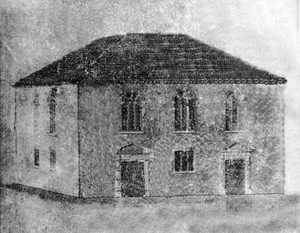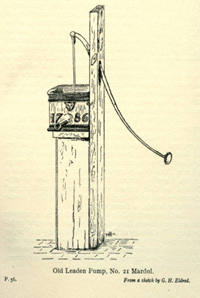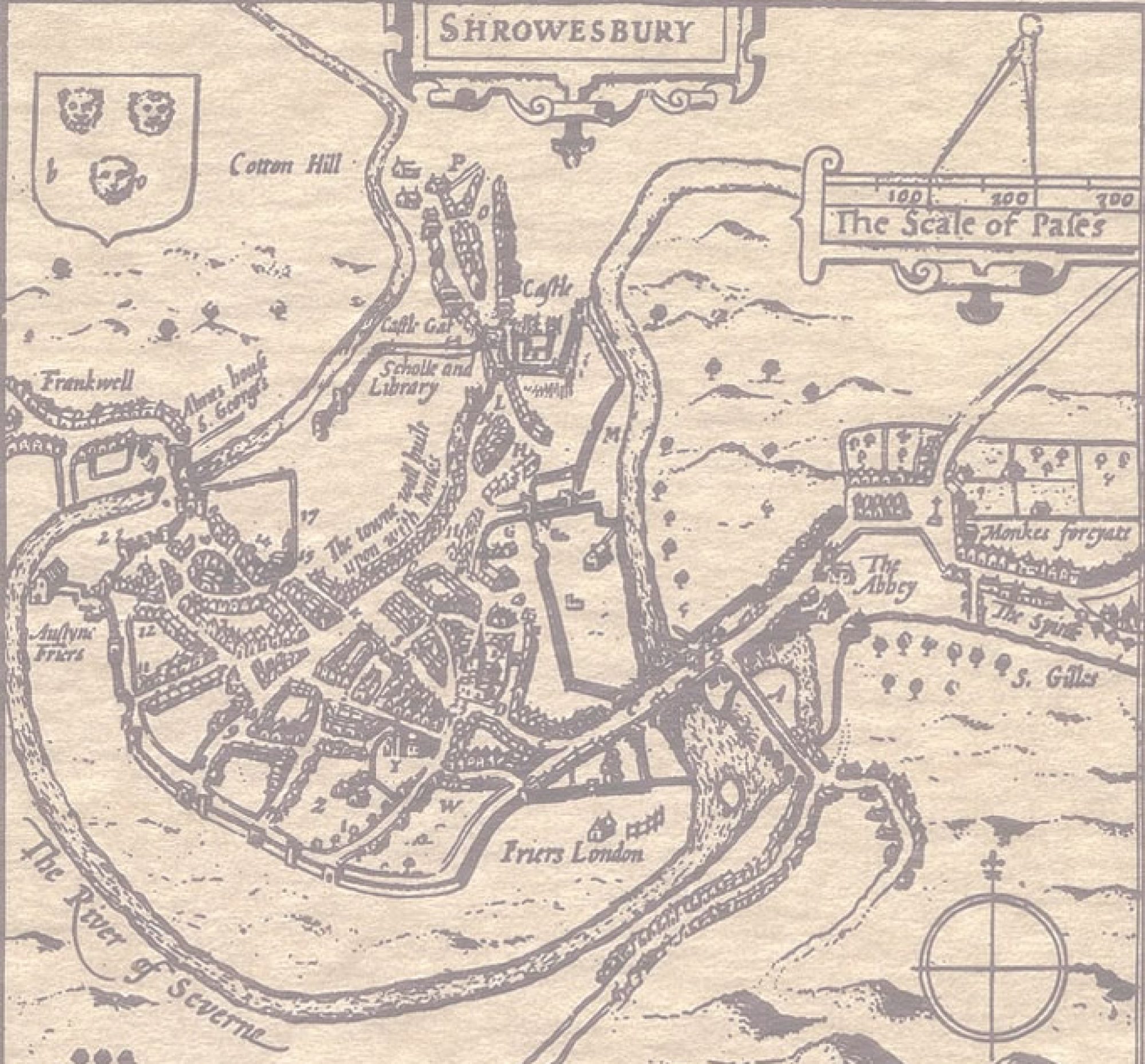There is a long and honourable history of Christians supporting the poor and vulnerable in Shrewsbury and here is one example.

The ‘Sick Man’s Friend and Lying-in Charity’ was founded in 1810, and, though based at the Swan Hill Congregational Church, was supported by men and women of many denominations. The population of Shrewsbury at that time was just under 15,000, crammed within the loop of the river, and in the newly ‘industrial’ areas of Coleham and Frankwell. The vast majority of the inhabitants lived in small multi-occupied dwellings, which were extremely insanitary. Water supply from pumps was unreliable (like the one pictured in Mardol), so many people had to obtain water from the river, into which most of the sewage found its way. As a consequence, the life expectancy of the poor was around 35, with anything up to a quarter of infants dying before their first birthday. At this time, the health of the poor was not considered to be the concern of the governing authorities, but the compassion of many Christians was aroused as they realised how even short-term sickness in a breadwinner could push the whole family into destitution. As these concerned people got to know the poor in their homes, they also realised that many women had no access to a midwife in labour, and did not even have baby clothes for their infants. These Christians were challenged by the story of the Good Samaritan (Luke 10.25-37), and felt the call to ‘Go and do likewise’, as Jesus commanded.

By 1816 the charity had around 160 active supporters, with a committee which met weekly. [Shropshire Archives 665/4/56] ‘Visitors’ advised the committee whom to support, having ascertained the circumstances of people recommended by subscribers. The needy were given money weekly, medicines (supplied freely by Robert Blunt, a local chemist and treasurer of the charity), and sometimes attended by a doctor, who also gave his expertise without charge to the charity. In addition, visitors gave spiritual support, with the provision of Bible portions donated by the Shropshire Bible Society, and other literature courtesy of the Shrewsbury Religious Tract Society [Shropshire Archives 6001/3056, p.54]. The female members of the charity dealt with the pregnant women, through financial gifts, clean linen for use in labour, baby clothes (often made by the ladies themselves), and sometimes providing a midwife.

The numbers of poor people supported varied, especially rising in number during periods of economic hardship such as the 1820’s. At this time the number of people helped each year varied from 107 to 228, with from 50-87 supported through childbirth and afterwards. The people helped seem to have received at least five visits each, a total of hundreds of visits each year. Astonishingly, this level of activity continued until the early years of the twentieth century, for example in the year 1907-08 111 needy people received 430 visits [Shropshire Archives 918/5/1]. By that time most of these people appear to have been the long-term sick, though there were still a significant number of women supported through pregnancy.
By 1915, however, the records note that ‘owing to the Insurance Act [passed in 1911] there are fewer necessitous cases, and the lying-in charity is discontinued.’ However, the report continued that ‘Relief in times of need is still required, but also the opportunity of bringing the light of the gospel to many a dark home.’ [Shropshire Archives 918/4] However from 1926 home visits by the charity ended and the income from the money that had been invested over the years was used to support the Shrewsbury Town Mission and various medical charities. The coming of the National Health Service in 1948 further lessened the need for the charity, and no records exist after 1954 [Shropshire Archives 918/2].
Even though the end of the charity is rather an anticlimax, I have found the story moving, not least the faithfulness of a group of ordinary Christians challenged, as they wrote, ‘to love thy neighbour as thyself… Without stopping to inquire respecting the local [which parish they came from] or religious peculiarities of any indigent [poor] sufferer, [the charity] has compassion on him, and binds up his wounds… It imparts instruction to his mind and relieves his bodily wants, thereby providing for his welfare… In the meantime, others, witnessing its philanthropic career and the important benefits it has conferred, have learned to ‘go and do likewise’[Shropshire Archives 665/4/56, September 1816].
